
(HBO) - Da Bia hamlet (now it is Duc Phong hamlet) in Tien Phong commune (Da Bac district) is a famous community tourism village in Hoa Binh province and it was awarded the ASEAN Community Tourism Award in 2019.
Da Bia
hamlet is located along the lake bed of Da river with about 40 households
(Muong ethnic people) living. In June 2014, the Australian NGO Action on
Poverty (AOP) in Vietnam cooperated with the People's Committee of Da Bac
district to implement the project "Community tourism in Da Bac” in Da Bia
village. There are 5 community motels with the living space imbued with the
culture of the stilt house of the Muong ethnic people in Da Bac.
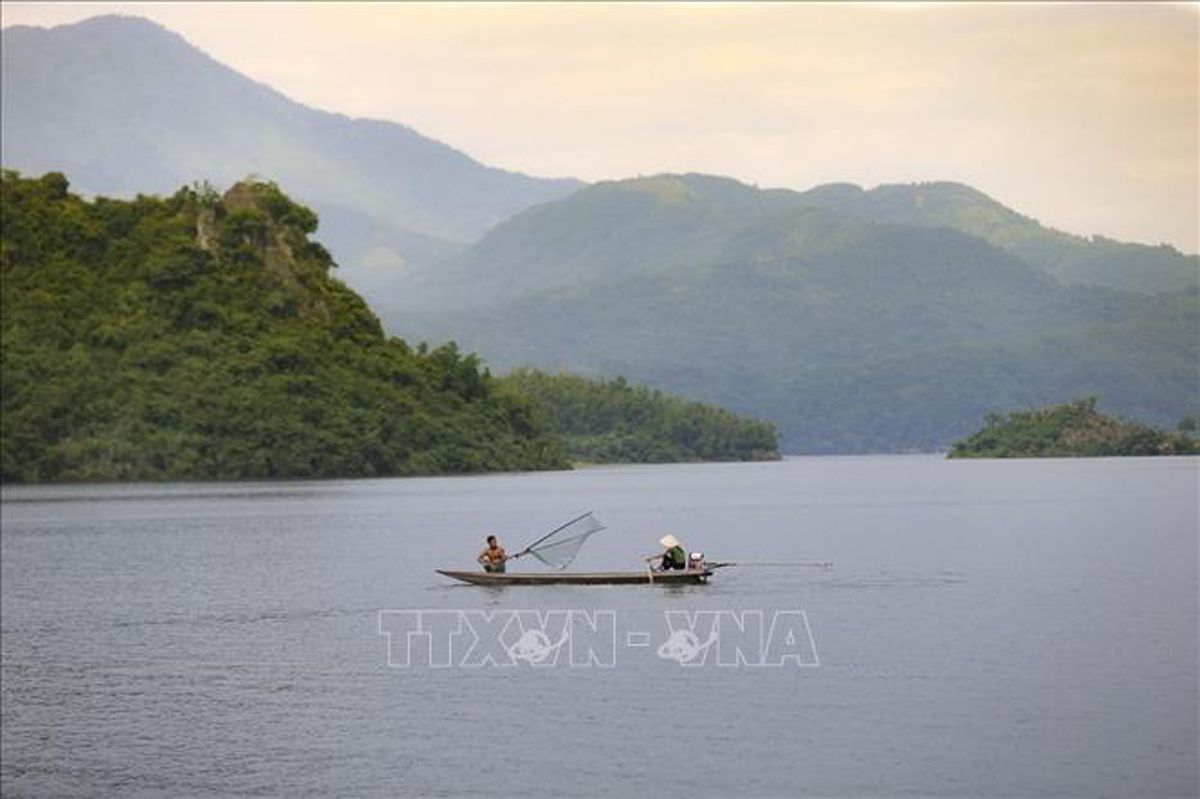
The
sacred Thac Bo Temple on Hoa Binh Lake.
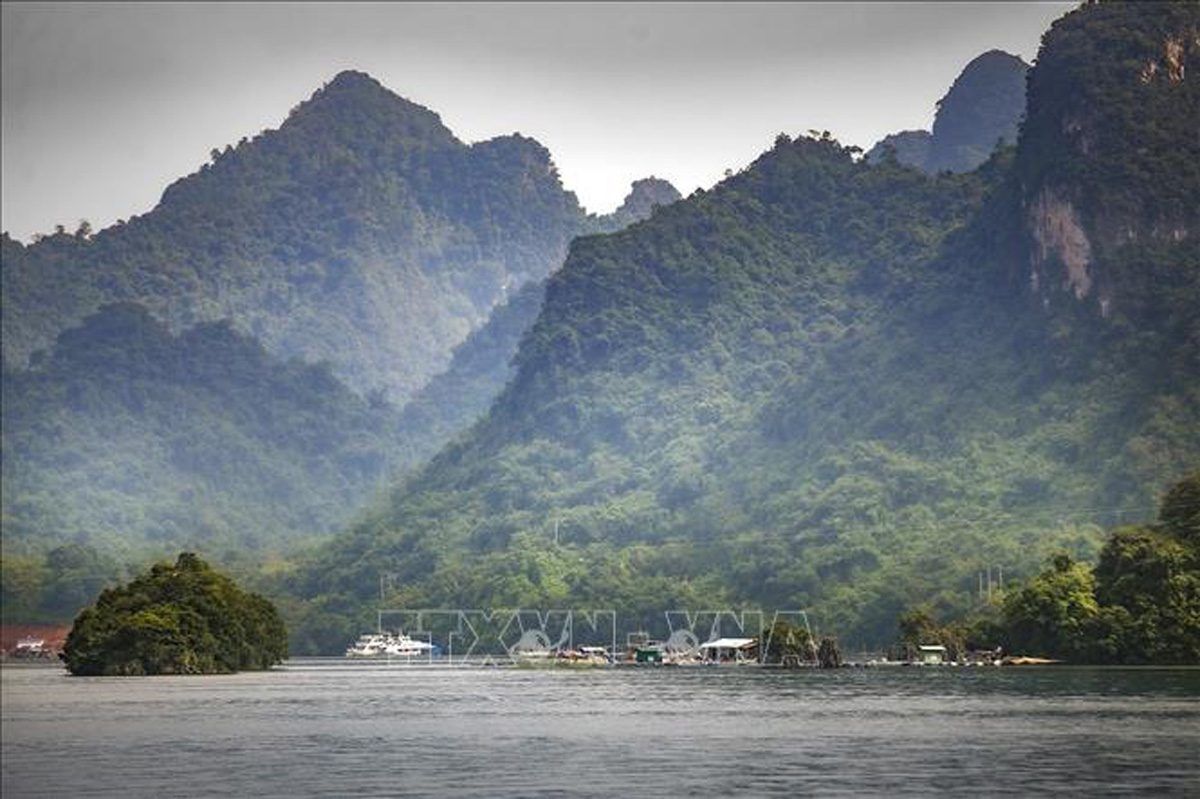
The
scenes of the peaceful life of people living along Hoa Binh hydropower
reservoir.
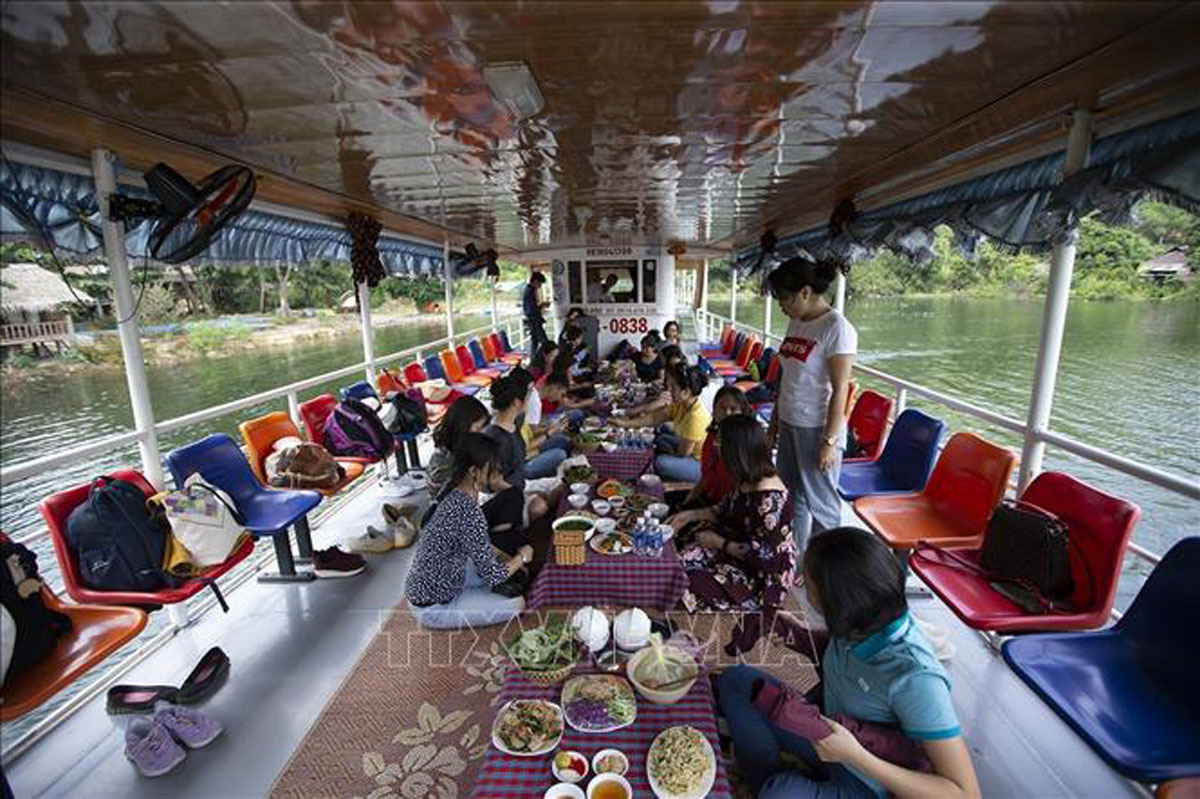
Tourists
are taking a cruise ship from Bich Ha port in Hoa Binh city to Da Bia village.
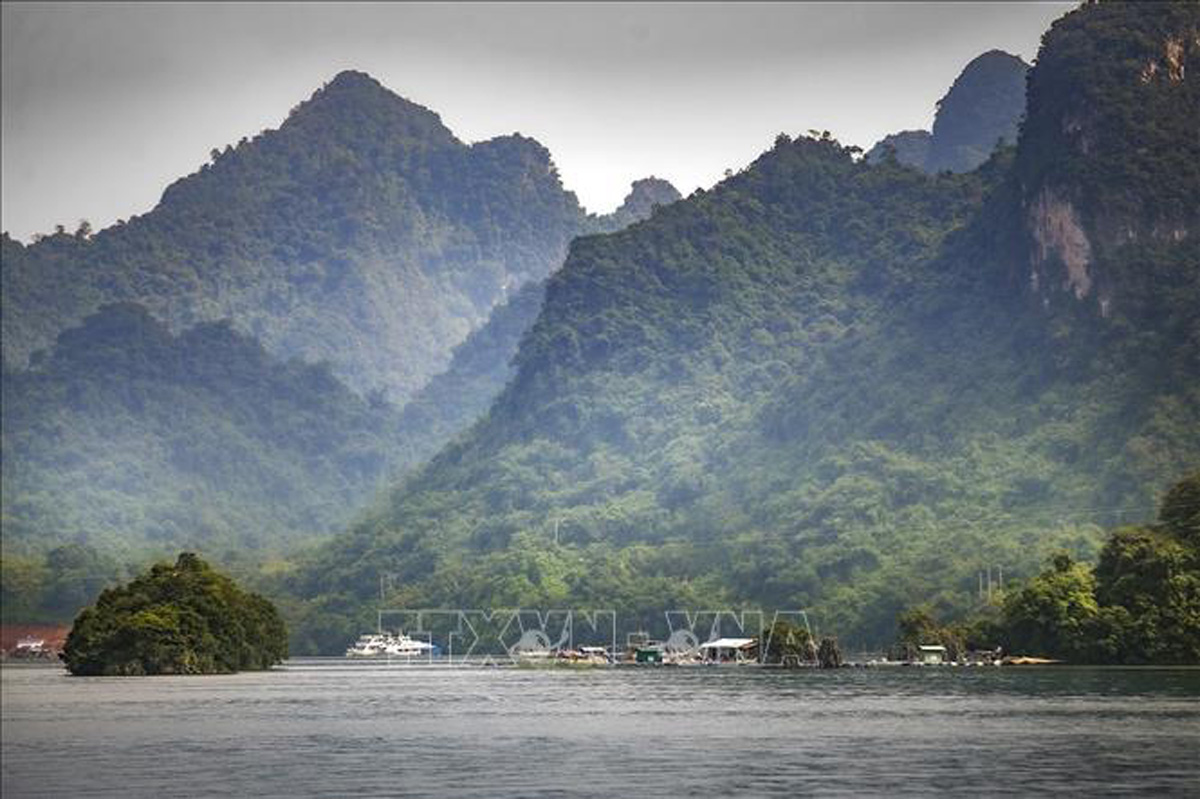
Da Bia
hamlet is a small village of Muong Ao Ta people located right next to Hoa Binh
lake.
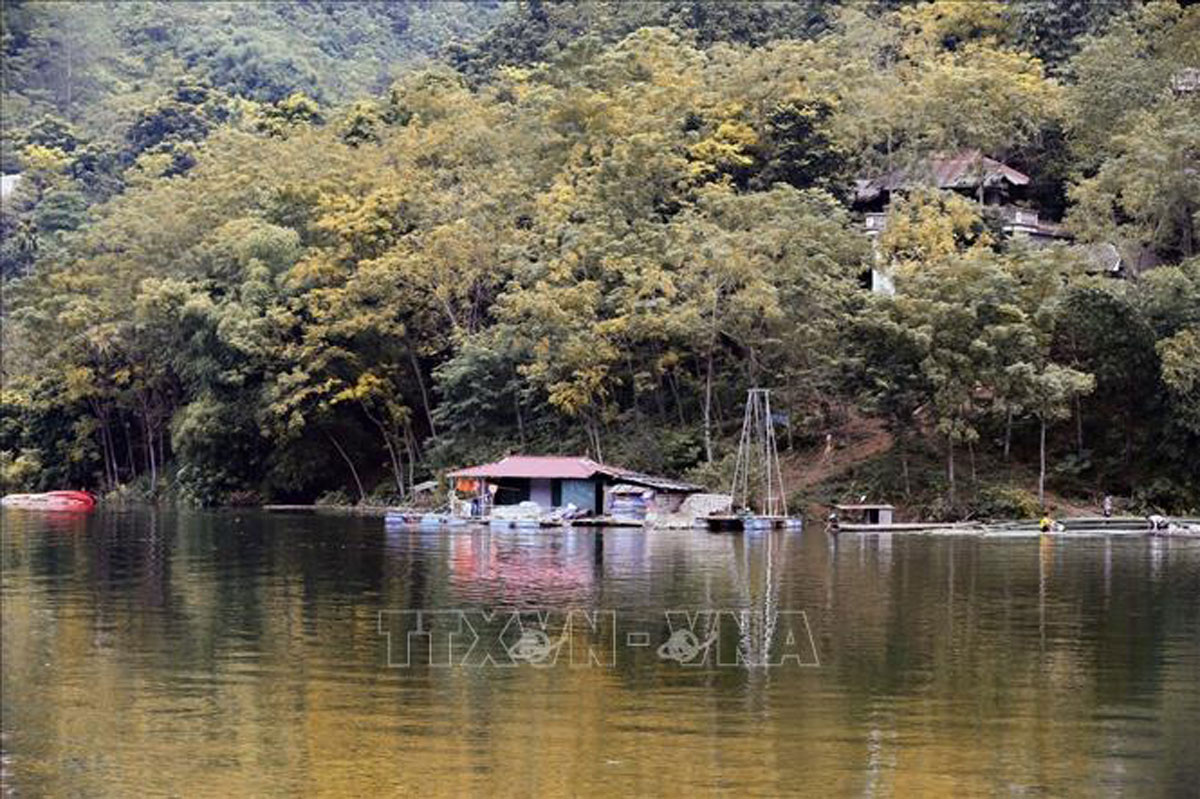
Da Bia
hamlet is located next to Hoa Binh lake in Tien Phong commune, Da Bac district.
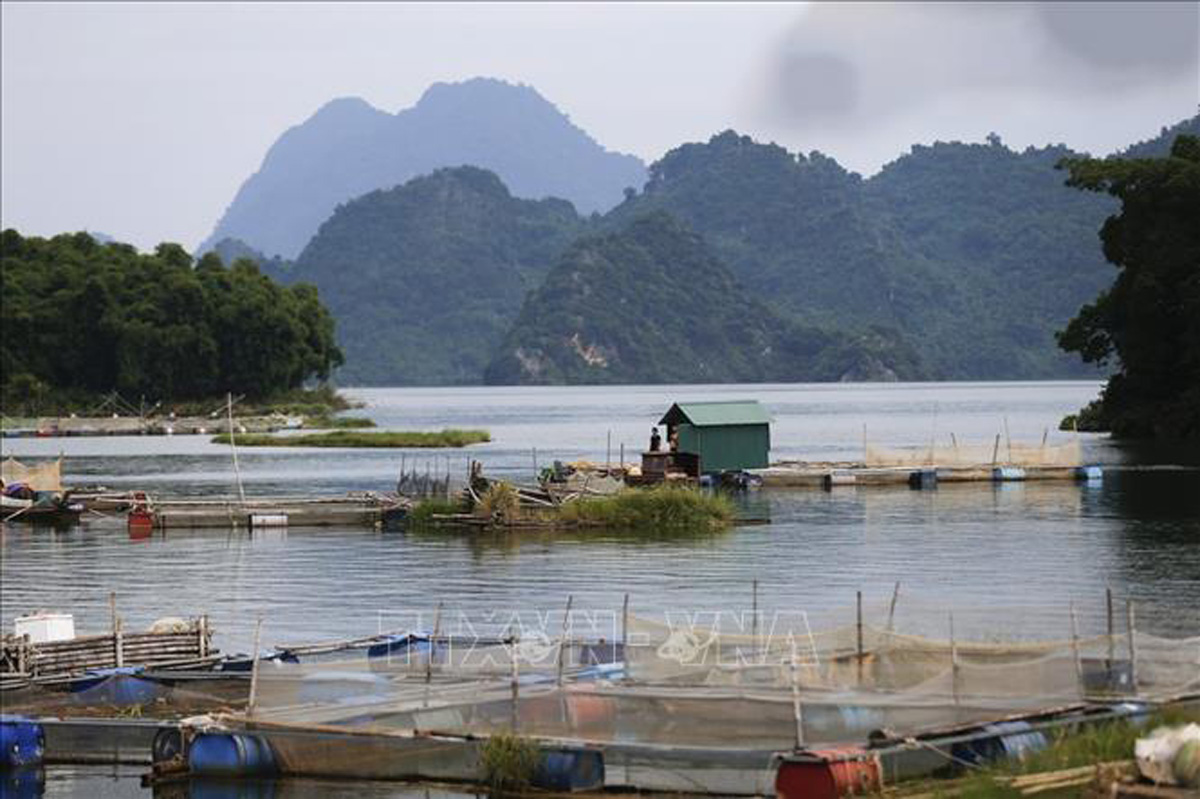
The
peaceful river scene of Da Bia village on Hoa Binh lake.
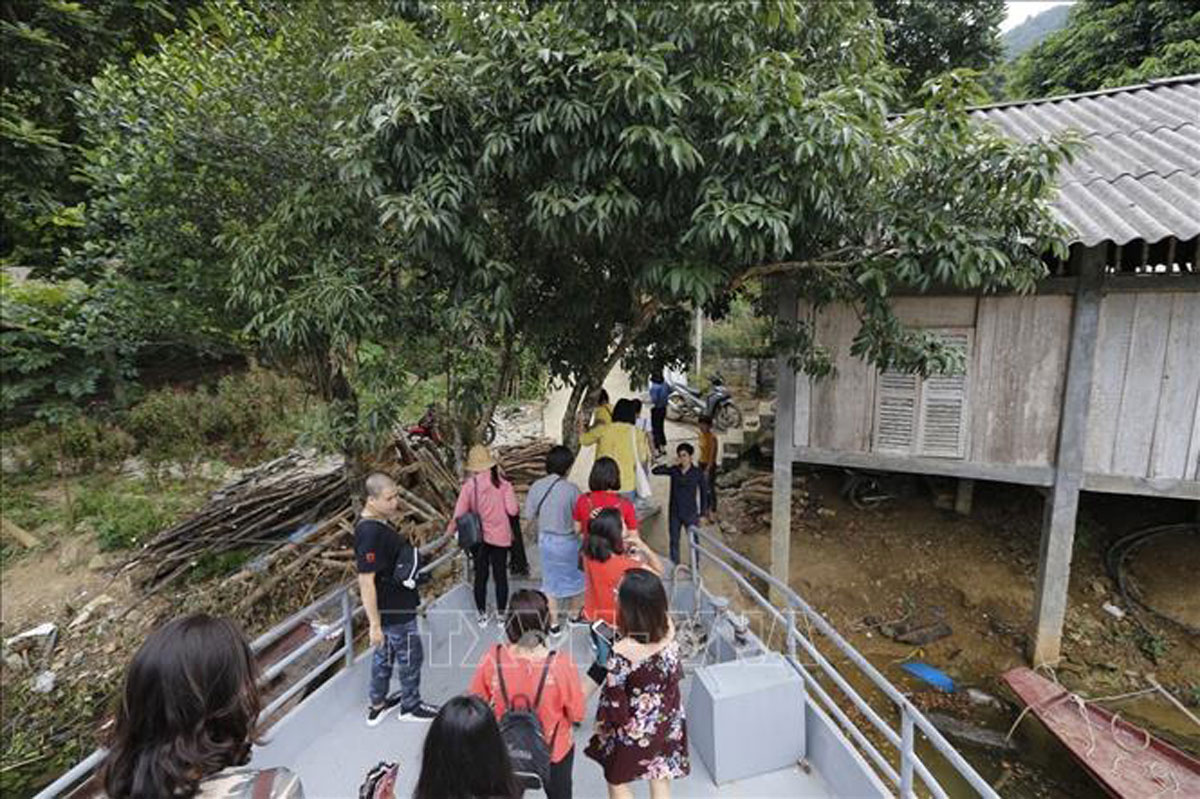
Tourists
are leaving the tourist boat for the trip to Da Bia village.
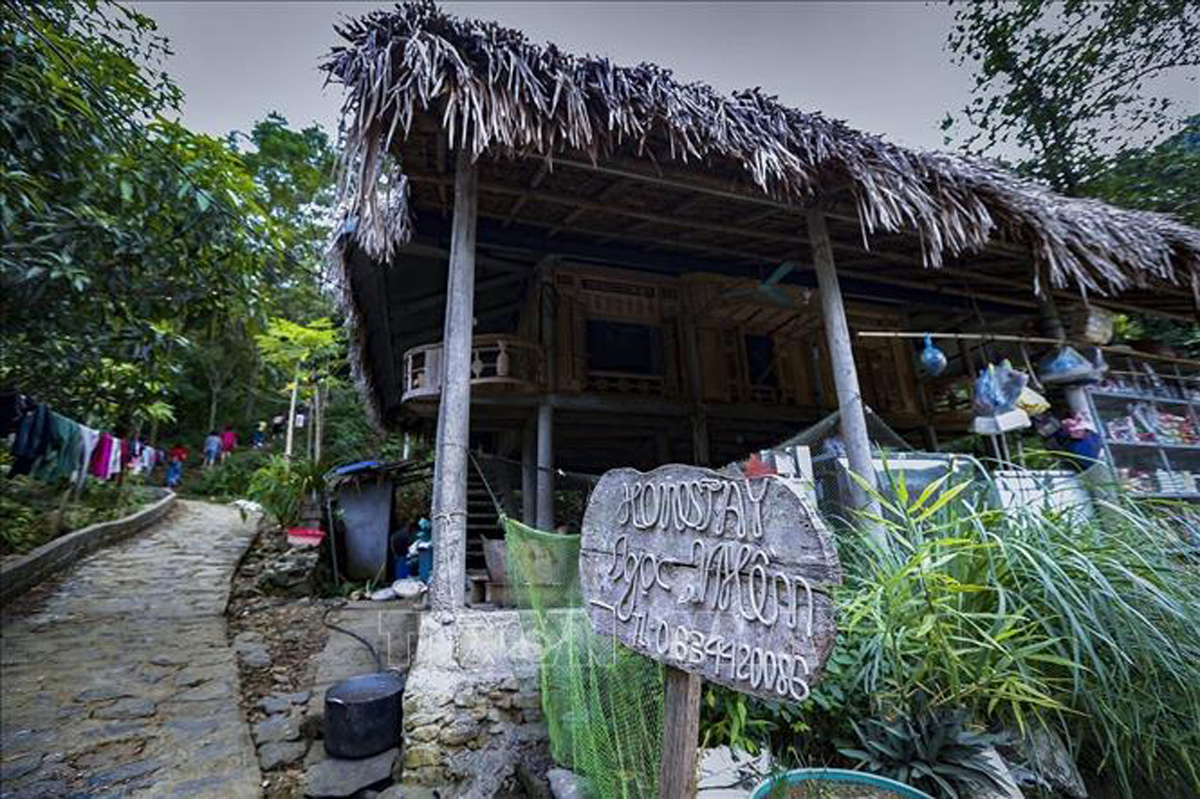
The
idyllic houses are very typical of the people of Da Bia hamlet, Tien Phong
commune (Da Bac, Hoa Binh).
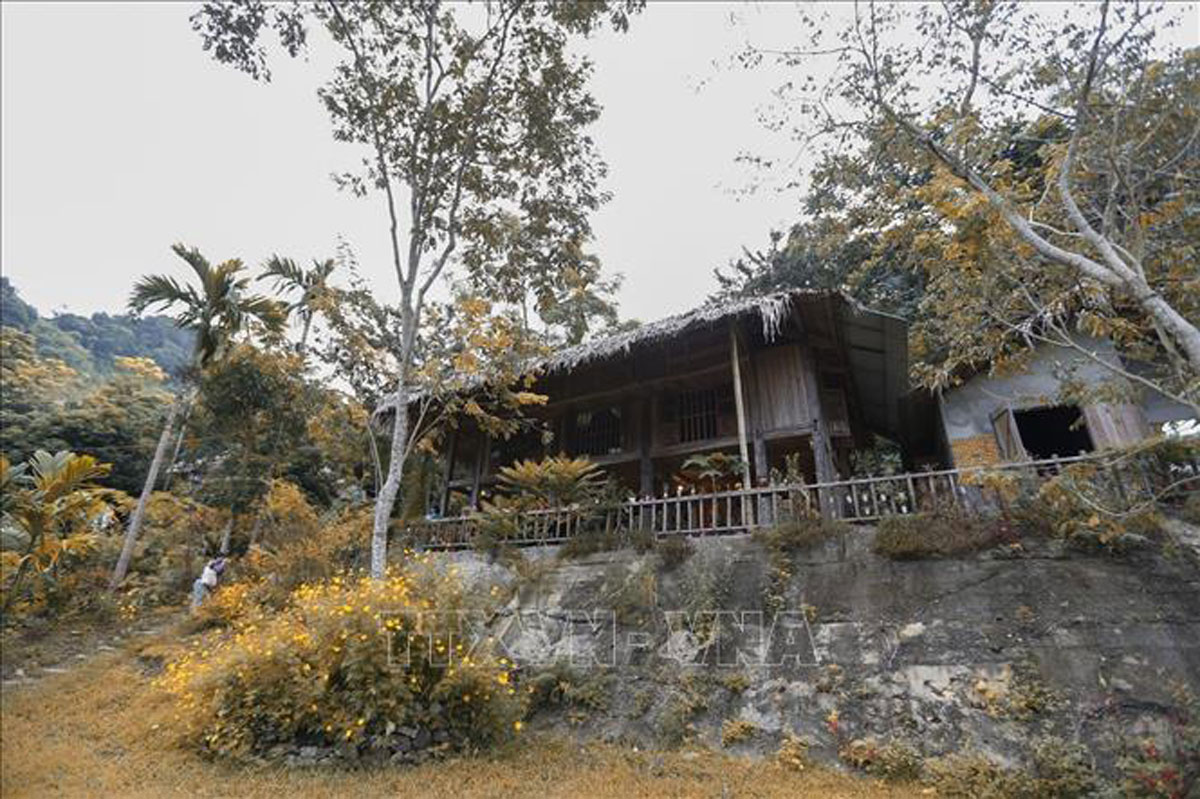
The
idyllic stilt houses of Ngoc Nhem Homestay have the typical characteristics of
Muong ethnic people in Da Bia hamlet, Tien Phong commune (Da Bac, Hoa Binh).
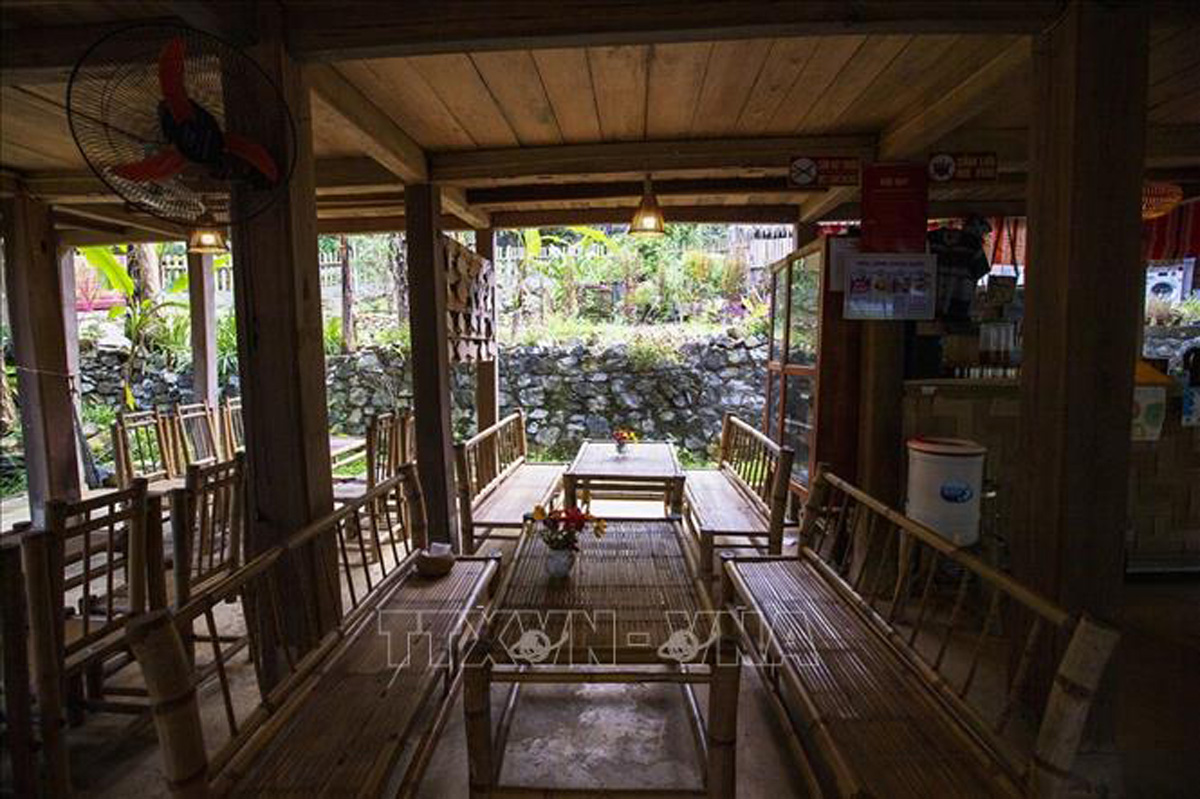
The
reception space below the stilt house at Ngoc Nhem Homestay in Da Bia hamlet,
Tien Phong commune (Da Bac, Hoa Binh).
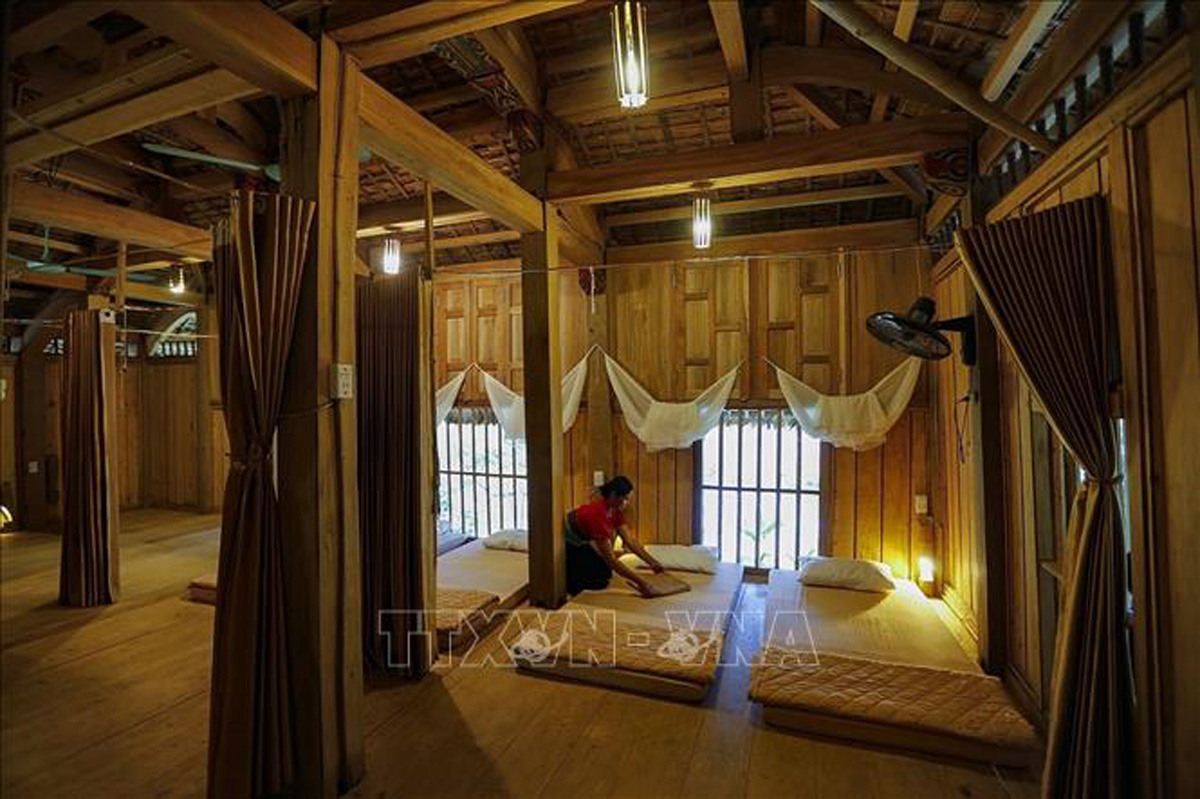
The
resting space for visitors at Ngoc Nhem Homestay in Da Bia hamlet, Tien Phong
commune (Da Bac, Hoa Binh).
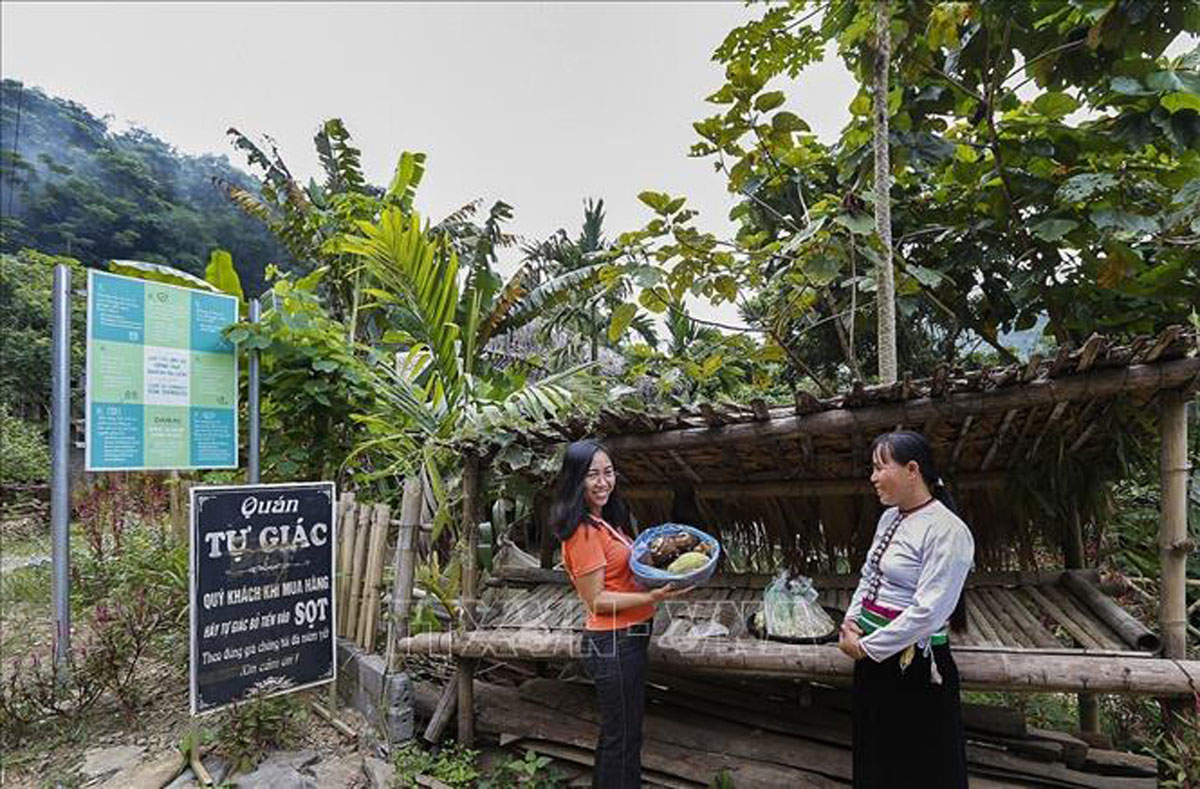
The
tourists from Hanoi are interested in the model of self- conscious Quan.
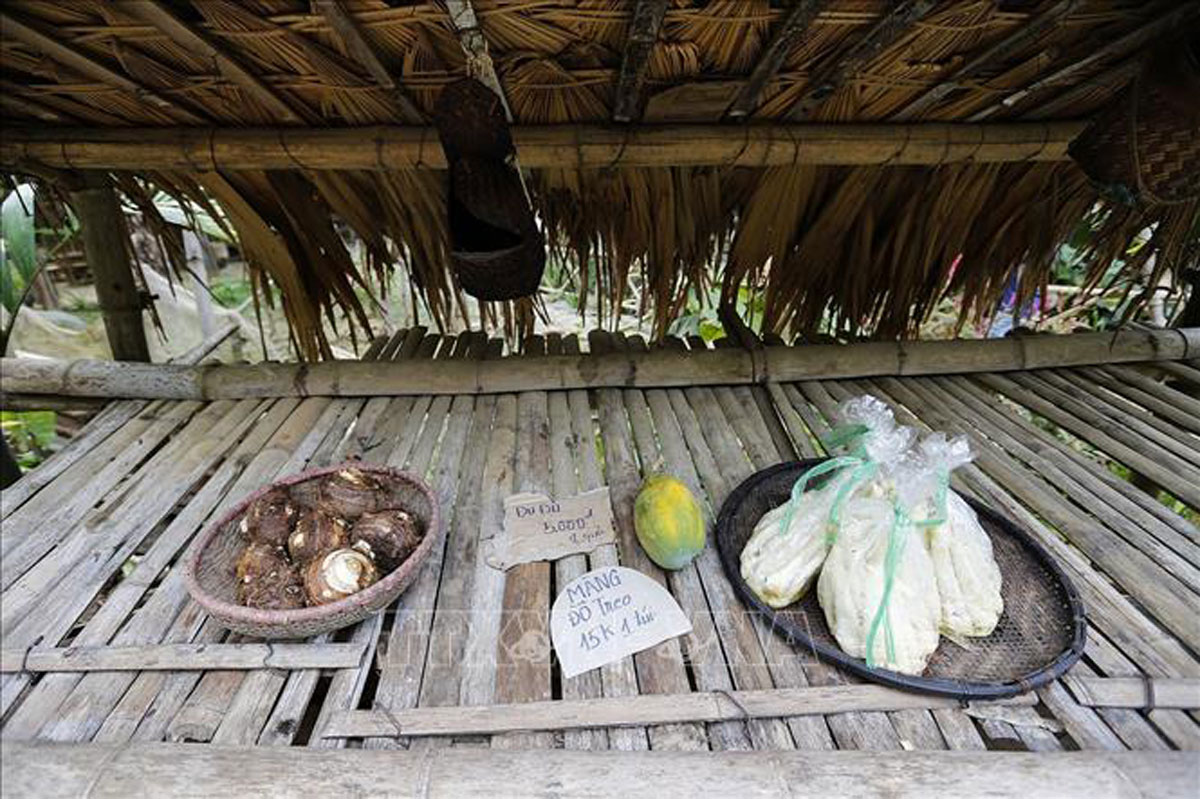
The
local products are sold at the self-conscious shop (the shop does not have a
seller, each item has a listed price, visitors or residents choose the item,
voluntarily put the corresponding amount in the basket and bring the goods).
In the last historic days of April, blending with the joyful atmosphere of the whole country, on the streets of Hoa Binh City, flags, banners and slogans are brilliantly decorated to celebrate the 50th Anniversary of Southern Liberation and National Reunification. Here are the records from Hoa Binh newspaper’s reporters:
Nestled halfway up the mountains in Cao Son commune, Da Bac district, Sung village appears like a picture preserved intact through generations. With a history of over 300 years, the village is home to nearly 100 households of Dao Tien ethnic group – the people who still maintain their distinctive characteristics in housing architecture, clothing, customs and traditional crafts. The village is drawing increasing interest and exploration from both domestic and international tourists, as every visit becomes a cultural journey to experience the authenticity, friendliness, and hospitality of this highland region.
This Spring, more than 1,000 phoenix trees in Thang Hamlet, Thach Yen Commune (Cao Phong) have bloomed brilliantly, quickly spreading on social media. The picturesque beauty of the flower garden has attracted the participation of many people to admire and take photos.
This belief is both a guiding principle and a lifelong ambition for Sa Van Cam, a member of the Tay ethnic group in Da Bac district and a passionate advocate for the Tay culture. The native has devoted years to the revival, preservation, and teaching of the ancient Tay script.
Located just 25 km from Hoa Binh city and approximately 100km from Hanoi, with a journey of around 1 hour 45 minutes, Ngoi Hoa ecotourism site (PriorBay Resort) in Suoi Hoa commune, Tan Lac district, is a stunning peninsula retreat, and a standout destination within the Hoa Binh Reservoir tourism area. Officially opening in February this year, the resort captivates visitors with its distinctive vacation products and a range of exciting adventure experiences.
Over 1,500 women paraded in traditional ao dai (long dress) at Hoa Binh Square on March 5 to mark Ao Dai Week 2025 launched by the Vietnam Women's Union. Organised by the provincial Women’s Union in collaboration with the city’s chapter, the annual event features lively folk dance performances and a colorful parade that celebrated the beauty of Vietnam’s traditional dress and its rich cultural heritage.















